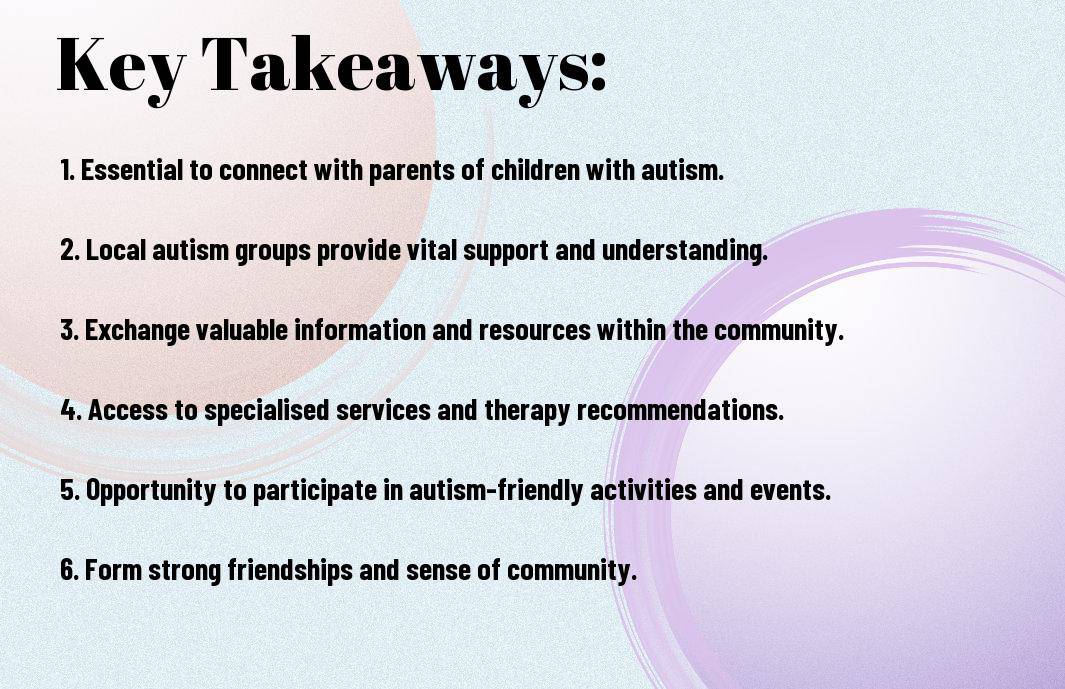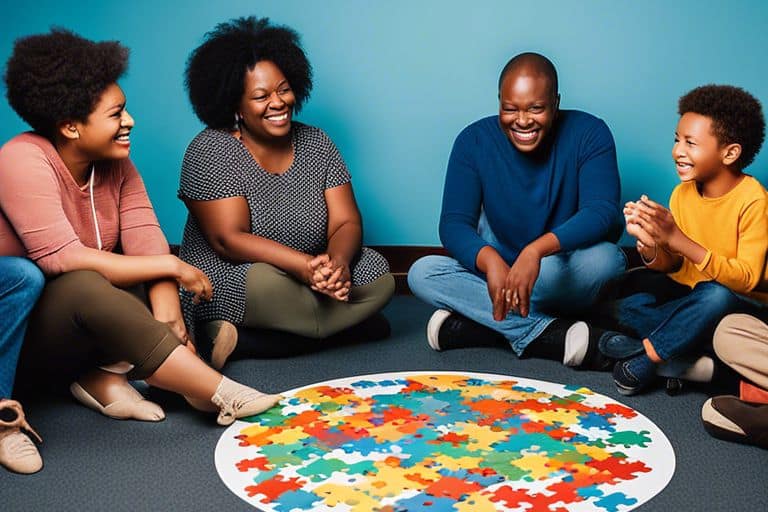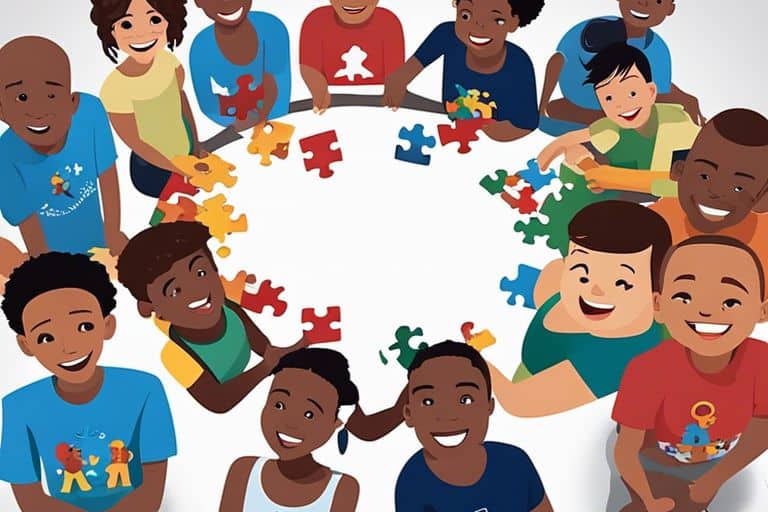Obtaining a strong support network is essential for families and individuals affected by autism. It is crucial to connect with local autism groups that can provide valuable resources, guidance, and understanding. Finding the right support system can make a significant difference in the lives of those impacted by autism, making it imperative to be aware of available groups in your area. This blog post aims to provide guidance on how to locate and connect with local autism support groups, as well as the benefits they can offer to individuals and families facing the challenges of autism.
Key Takeaways:
- Local Autism Groups can provide valuable support and resources for individuals and families affected by autism.
- Connecting with like-minded individuals in these groups can help create a sense of community and understanding.
- By joining these groups, individuals can gain insight and knowledge about local services and advocacy opportunities for the autism community.

Identifying Your Needs
Before you begin to build a support network, it’s important to take the time to identify your specific needs. Every individual and family has unique requirements and it’s essential to understand what those are before seeking out support. This can include practical support, emotional support, information and advice, or simply the need for social interaction with others who understand your situation.
Support for Parents and Caregivers
Parents and caregivers of individuals on the autism spectrum often find themselves in need of support themselves. This can come in the form of respite care, support groups, or access to information and resources. It’s crucial for parents and caregivers to have a strong support system in place, as the challenges they face can be overwhelming at times. Finding a community of others who understand and can offer advice and empathy is invaluable.
Embracing the Autistic Individual’s Perspective
It’s important to consider the perspective of the autistic individual themselves when building a support network. This means listening to their needs and preferences, as well as seeking out communities and resources that promote understanding and acceptance of neurodiversity. Embracing the autistic individual’s perspective can lead to more positive outcomes and a stronger, more supportive network.
By incorporating the autistic individual’s perspective into the support network, we can create a more inclusive and positive environment that benefits everyone involved. This can lead to better communication, reduced stress, and a greater sense of belonging for all members of the support network.
Searching for Local Autism Groups
When looking for local autism groups, one invaluable resource is the State Resources for Autism | IACC website. Here, you can find a comprehensive list of organisations and support groups in your area.
Leveraging Social Media and Online Resources
Social media platforms and online forums can be powerful tools for connecting with local autism groups. Facebook, for example, has numerous groups dedicated to autism support and advocacy. Twitter chats and Instagram hashtags can also help you find like-minded individuals and organisations in your community.
Utilizing Local Schools, Hospitals, and Community Centers
Local schools, hospitals, and community centres often have resources and information about autism support groups. They may host support group meetings or have bulletin boards where local groups post their events and contact information. These institutions can be a valuable starting point for finding local support networks.
Furthermore, local schools can provide information about special education services, while hospitals and community centres may host workshops or events related to autism awareness and support.

Engaging with the Autism Community
Engaging with the autism community is an important part of building a support network for individuals and families affected by autism. One way to connect with the community is through organisations such as the Autism Society, which is dedicated to creating connections for the autism community.
Outreach Programs and Events
Outreach programs and events organised by the Autism Society and other local autism groups can provide valuable opportunities for individuals and families to connect with others in the community. These events often include workshops, seminars, and social gatherings, which can be incredibly beneficial for building relationships and gaining valuable insights.
Volunteering and Contributing
Volunteering with local autism groups and contributing to their initiatives is an excellent way to make a positive impact on the autism community. By offering your time and skills, you can help to support individuals and families affected by autism, while also gaining valuable experience and insight into the needs of the community.
Volunteering and contributing to the autism community can also boost your own well-being and sense of fulfilment, knowing that you are playing a vital role in supporting those affected by autism.
Building Your Own Support Network
Building your own support network is crucial for individuals and families affected by autism. Whether you are a parent looking for other parents to connect with, or an individual on the autism spectrum seeking like-minded peers, creating a support network can provide a sense of community, understanding, and resources when facing the unique challenges of autism.
Starting a Local Autism Group
Starting a local autism group can be a powerful way to build a support network in your community. By reaching out to other parents, individuals, and professionals in your area, you can establish a network that offers peer support, information sharing, and social opportunities. Organising meetings, workshops, and social events can be a great way to bring people together and provide a safe space for individuals and families affected by autism to connect and support one another.
Collaboration with Existing Organizations
Collaborating with existing autism organisations in your area can provide additional resources and support for your own network. By partnering with reputable and experienced organisations, you can access valuable information, training, and guidance on how to effectively support individuals and families affected by autism. This collaboration can also lead to opportunities for joint events, workshops, and advocacy efforts, further strengthening the impact of your support network.
Working with established organisations can also provide access to funding, facilities, and networking opportunities, which can help sustain and grow your support network over time. Collaborating with existing organisations can also help raise awareness and promote acceptance of autism within the wider community, ultimately creating a more inclusive and supportive environment for individuals on the autism spectrum.

Building a Support Network – Finding Local Autism Groups
It is crucial for individuals and families affected by autism to reach out and connect with local support groups. These groups provide a safe and understanding environment where individuals can share experiences, seek advice, and access valuable resources. By joining a local autism group, individuals can gain a sense of community, reduce feelings of isolation, and receive the necessary support to navigate the challenges associated with autism. Additionally, these groups often organise events, workshops, and social activities that can benefit both individuals with autism and their families. It is important to utilise these local resources and build a support network that can provide the necessary guidance and understanding for living with autism.
FAQ
Q: What are the benefits of joining a local autism support group?
A: Joining a local autism support group can provide access to a network of parents, carers, and individuals with autism who can offer support, guidance, and understanding. It also provides opportunities for social interaction and the sharing of resources and information.
Q: How can I find a local autism support group?
A: You can find local autism support groups by contacting your local autism charity or organisation, searching online, asking for recommendations from healthcare professionals, or reaching out to other parents and carers in your community.
Q: What types of activities do local autism support groups organise?
A: Local autism support groups often organise various activities such as informational workshops, social events, parent support meetings, and sensory-friendly outings. These activities cater to the needs and interests of individuals with autism and their families.
Q: Can I bring my child with autism to a local support group meeting?
A: Yes, many local autism support groups are family-friendly and welcome individuals with autism to attend their meetings. Some groups may also provide childcare or supervision to allow parents to fully participate in the meetings.
Q: Are local autism support groups free to join?
A: While some local autism support groups may charge a nominal fee to cover expenses for activities, the majority of groups are free to join. They are often funded by donations, grants, or local community support.
Q: What kind of support can I expect from a local autism support group?
A: Local autism support groups can provide emotional support, practical advice, access to resources and information, advocacy assistance, and opportunities for connecting with other families facing similar challenges.
Q: How can I get involved in running or organising a local autism support group?
A: If you are interested in getting involved in running or organising a local autism support group, you can start by reaching out to existing groups to offer your assistance, attending meetings and events, and expressing your interest in taking on a role within the group. Alternatively, you can start your own group with the support of local organisations and community members.







